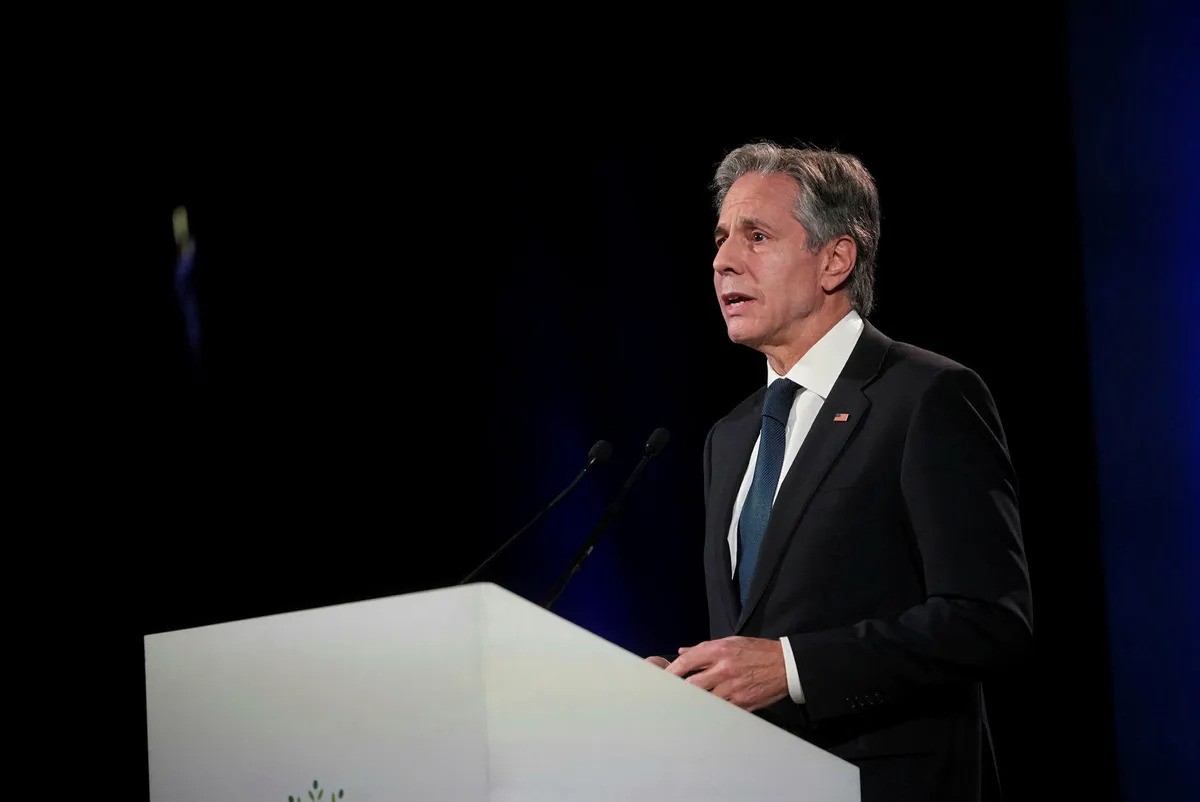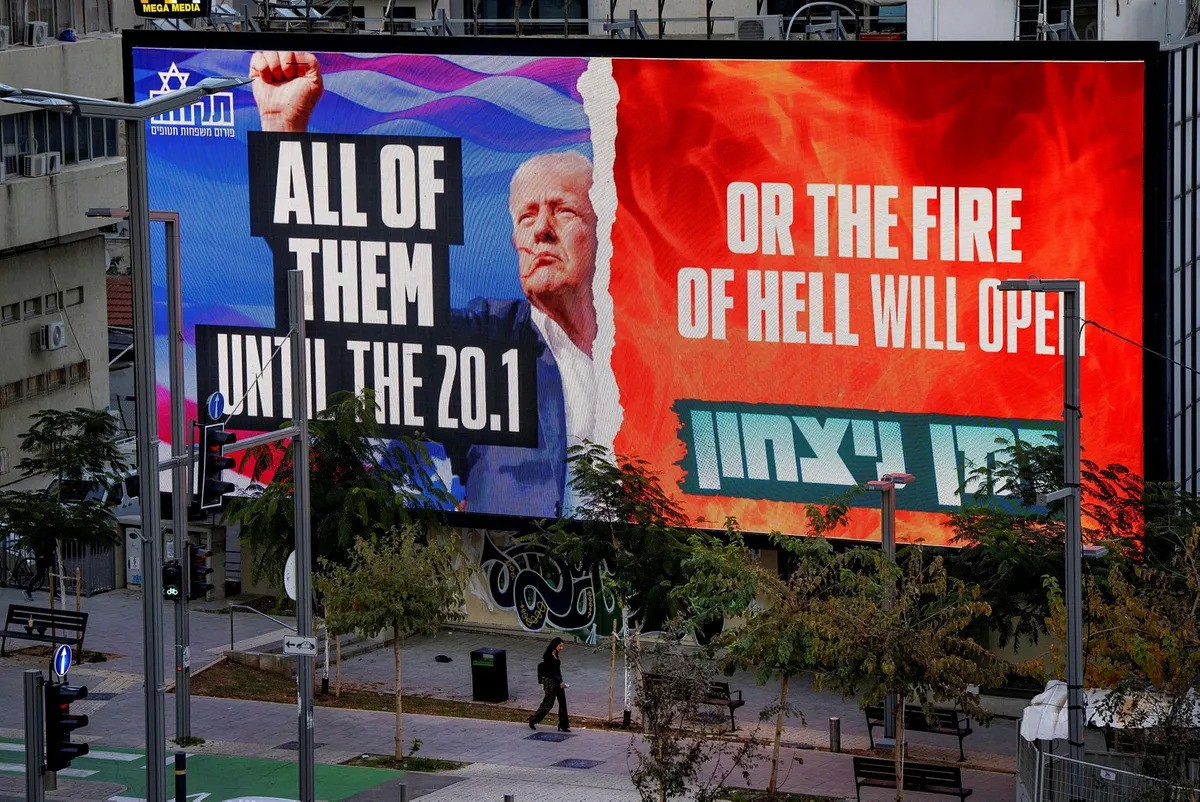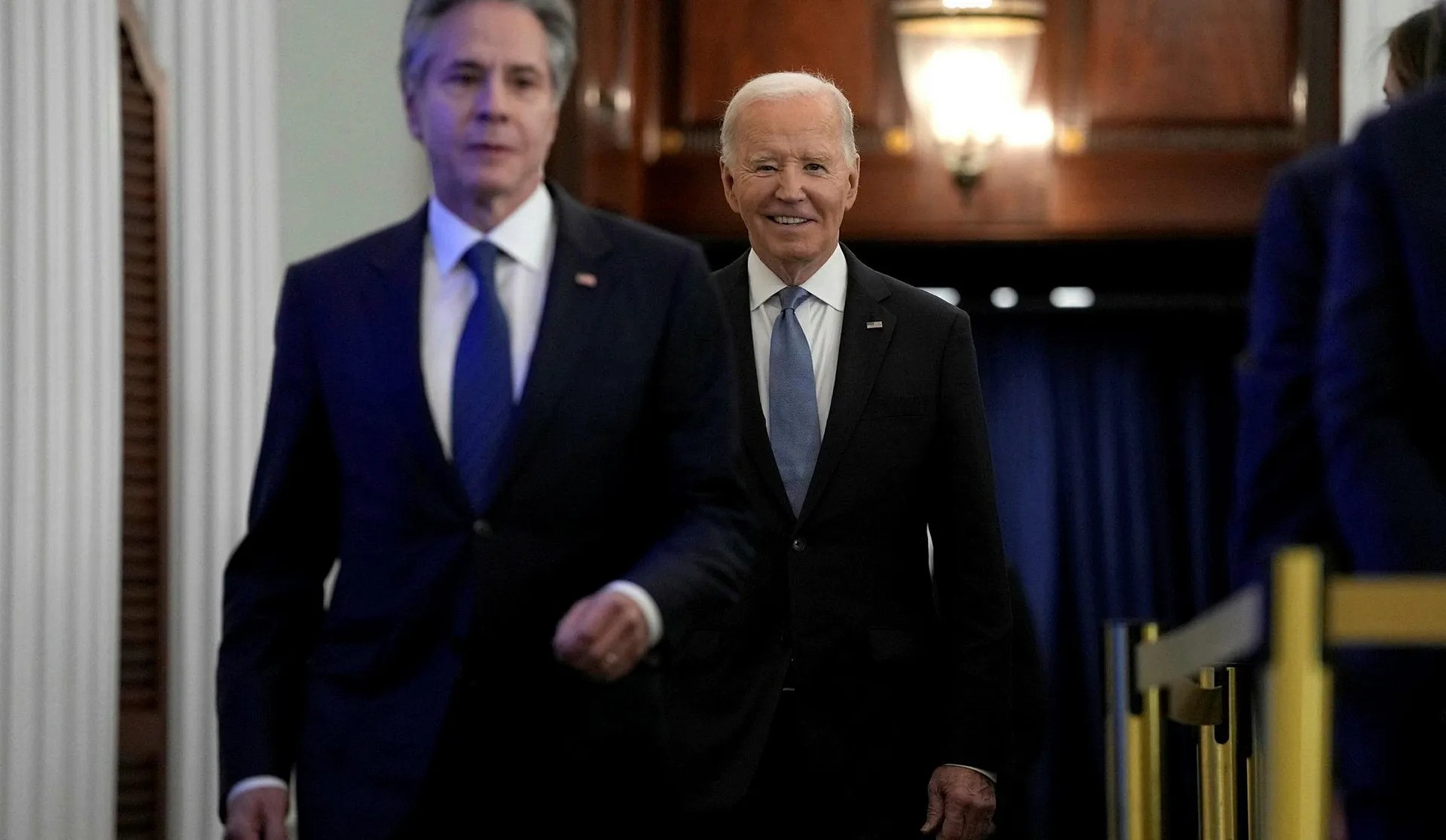Zvi Bar’ el,
From Biden’s bombs embargo to Trump’s hollow but apparently effective threat of opening the gates of hell, it’s now clear to the U.S. that only maximum pressure works with Netanyahu. Faced with critical practical and policy issues, will coercion be the Trump administration’s tool of choice for the unresolved Israel-Palestinian conflict?
Outgoing Secretary of State Antony Blinken delivered the keynote remarks at a conference held on Tuesday by the Atlantic Council. He said it was time “to forge a new reality for the Middle East – in which all people are more secure, all can realize their national aspirations, all can live in peace. Is that hard to achieve? Yes. Peace in the region always has been… Is it impossible? No. Is it necessary? Absolutely, yes.”
His words encapsulated the essence of his diplomatic mission and the strategy he formulated and marketed together with President Joe Biden. So far, however, these words remain wishful thinking, the likes of which could be heard in concluding remarks by other preceding U.S. administrations, including ones that had invested immense efforts in order to advance diplomatic processes only to be left with crumbs.
Blinken had a well-thought-out plan. Its main points were published at the G7 meeting in Tokyo in November 2023, one month after the beginning of the war, but it has remained almost unchanged since then and has seen no real progress.
This week, Blinken summarized its principles in a few sentences that determined Gaza would never be ruled by Hamas. “The principles included a Gaza never again ruled by Hamas or used as a platform for terrorism or other violent attacks. New Palestinian-led governance – with Gaza united with the West Bank under the Palestinian Authority. No Israeli military occupation of Gaza or reduction of Gaza’s territory. No attempt after the conflict to besiege or block it, and no forcible displacement of Gaza’s population,” said Blinken.

To fulfill this ambition, the Palestinian Authority will have to undergo significant reforms, he said, with Israel required to accept the unity of Gaza and the West Bank under the leadership of the Palestinian Authority. “We believe that the Palestinian Authority should invite international partners to help establish and run an interim administration with responsibility for key civil sectors in Gaza, like banking, water, energy, health, civil coordination with Israel.
The international community would provide funding, technical support and oversight,” he said. This is only the first stage, which must, Blinken said, have the final aim of establishing an independent Palestinian state.
Blinken repeated the well-known fact that “Israelis must abandon the myth that they can carry out de-facto annexation without cost and consequence to Israel’s democracy, to its standing, to its security.” He also accused Israel, stating that “Israel’s government has systematically undermined the capacity and legitimacy of the only viable alternative to Hamas, the Palestinian Authority.” Blinken did not refer to another practical matter, namely, the inability of the Biden administration to move forward with this plan.
When one examines how the diplomatic campaign to release the hostages was and is being conducted, and despite immense efforts invested by the Biden administration into this cause, the final impression – and perhaps the legacy – of this tortuous process is that without the threats and brutal pressure exerted by President-elect Donald Trump, it seems we would not have reached the final stage of signing a deal (which has not been signed as of this writing).
The hollow expression coined by Trump, “all hell will break out” – without indicating what hell and who will walk through its gates – is the factor that turned the magic key needed to compel Netanyahu to agree to a deal that Biden laid on his desk many months ago. Could Biden have opened the gates of hell himself at an earlier stage? No commission of inquiry will be established in the U.S. to examine all the administration’s failures regarding the handling of the war in Gaza, but it appears that both administrations, Biden’s and Trump’s, can already draw a clear conclusion: Israel only understands force.

It’s not just the hostage deal that attests to the validity of this statement. Biden forced Netanyahu to agree to an increase in the scope of humanitarian aid entering the Gaza Strip – although in this matter, too, and despite the sanctions on delivering heavy bombs to Israel, the humanitarian aid never reached the required levels demanded by the U.S. administration, with no new and effective arrangements made for distributing it.
The uprooting of Gaza’s population, a key part of the prohibitions the U.S. administration sought, was not stopped and was even expanded, while tough conversations between Washington and Jerusalem failed to halt the rioting and the harassment of West Bank Palestinians by settlers.
Regarding the administration of the Gaza Strip once the war ends, a topic that is extremely urgent given the redeployment of Israeli forces in the area, American ambitions are stuck in the same place as at the start of the war. Attempts to mobilize local forces, heads of tribes or clans or other local representatives – or the idea of employing an American company that would take responsibility for aid distribution – never coalesced into a practical plan.
One may assume that a reality in which armed gangs and Hamas fighters continue to oversee aid distribution, as they’ve done so far will continue in the coming weeks, and possibly months. Another thorny issue is control over the Rafah border crossing into Egypt, which is expected to open at some point during the cease-fire. Egypt is insisting that the Gazan side be controlled by recognized Palestinian elements, meaning the Palestinian Authority or another Palestinian body.

Egypt, in coordination with the U.S. administration, has initiated the creation of a “social management committee” composed of a number of familiar names, agreed upon by Hamas and the Palestinian Authority. Its role would be to manage civilian infrastructure under the aegis of the PA and based on an edict published by its head, Mahmoud Abbas.
Hamas has agreed to accept such a committee and has presented a list of people who could take part in it. Abbas vetoed this, announcing his objection to such a committee. Abbas justified this by saying that it would constitute a parallel government to the Palestinian Authority government and would in fact sever the link between the two parts of Palestine and undermine the PA’s status as the sole representative of the Palestinian people.
Israel’s basic and uncompromising stance is to vehemently oppose any cooperation with the PA in the administration of Gaza, in any capacity whatsoever. Given these positions, the U.S. administration had no way of responding. Without the inclusion of the PA or any other recognized Palestinian body, the American initiative for mobilizing a multi-national force, mainly an Arab one, that would enter Gaza and help protect people and secure the distribution of aid, has remained theoretical.
Trump is inheriting a complex and dangerous Middle East. He did manage to implement an important part of his “deal of the century” by getting the Abraham Accords signed, but he is returning to square one in everything related to the Israeli-Palestinian conflict, which has been the context for the war that has been ongoing for over 15 months.

Unlike Blinken and Biden, Trump has so far not laid down a realistic work plan about immediate practical issues, the strategy he wishes to implement for the administration of Gaza, a diplomatic process between Israel and the Palestinians or the normalization of relations between Israel and Saudi Arabia.
It will be interesting to see how he means to get around Riyadh’s conditions regarding a solution to the conflict, which involves a diplomatic process based on a two-state solution in exchange for said normalization. One now has to wait and see whether “all hell breaking loose” will become part of his permanent strategy on other cardinal issues, or whether it was a one-off show.
It appears that both administrations, Biden’s and Trump’s, can already draw a clear conclusion: Israel only understands force.
Source: https://www.haaretz.com
Disclaimer: We at Prepare for Change (PFC) bring you information that is not offered by the mainstream news, and therefore may seem controversial. The opinions, views, statements, and/or information we present are not necessarily promoted, endorsed, espoused, or agreed to by Prepare for Change, its leadership Council, members, those who work with PFC, or those who read its content. However, they are hopefully provocative. Please use discernment! Use logical thinking, your own intuition and your own connection with Source, Spirit and Natural Laws to help you determine what is true and what is not. By sharing information and seeding dialogue, it is our goal to raise consciousness and awareness of higher truths to free us from enslavement of the matrix in this material realm.
 EN
EN FR
FR


























